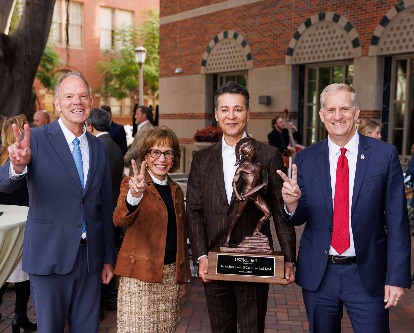
USC Marshall Celebrates Tavakoli Center for Real Estate Naming Ceremony
USC President Folt, Dean Garrett, and Provost Guzman joined industry leaders, faculty, and alumni to celebrate the launch of the new real estate center.
Chris Parsons has taught and conducted research on a variety of topics, including corporate finance, investments, real estate, and labor economics. Some of his recent papers have explored geographic patterns in value creation (stock returns) for shareholders of public companies, with an eye on identifying which urban attributes catalyze innovation and growth. He has also studied regional patterns in white collar crime, house price dynamics in California, and how the quality of mortgage loan officers impact the level of service received by bank clients. In the last few years, he has taught courses in the full-time MBA program (GSBA 548, core finance), as well as numerous real estate class including Real Estate Investment Trust (REIT) Analysis (FBE 467), Advanced Real Estate Analysis (FBE 470), Management of Real Estate Development (FBE 466). Chris holds a PhD in finance from the University of Texas at Austin in 2008. Prior to Marshall, he served on the faculties of McGill, UC San Diego, UNC Chapel Hill, University of Washington, and Harvard Business School.

NEWS + EVENTS
COURSES